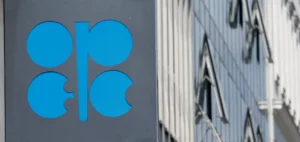Spanish oil group Repsol has obtained an individual license from the United States to continue operating in Venezuela, announced Pedro Tellechea, Venezuelan Oil Minister and Chairman of Petroleos de Venezuela (PDVSA). This license comes against a backdrop of tightened US sanctions, aimed at removing President Nicolas Maduro from power. Initially relaxed in October 2023, the sanctions were reactivated in April following the ineligibility of main opponent Maria Corina Machado. Washington now requires all companies wishing to operate in Venezuela to obtain specific licenses. Repsol, with a 40% stake in the Petroquiriquire joint venture alongside PDVSA (60%), is one of the first to benefit from this new requirement. This license will enable Repsol to continue contributing to Venezuelan oil production, which currently stands at 924,000 barrels per day.
Agreements and production prospects
Repsol and PDVSA have signed an agreement to increase their joint oil and gas production. Pedro Tellechea expressed his optimism about achieving a production target of one million barrels per day by the end of the year. This partnership is essential for Venezuela, whose oil production has fallen sharply in recent years. By 2023, production will have reached 750,000 barrels per day, well below the 3 million barrels per day achieved fifteen years ago. In addition to Repsol, other companies have also received licenses from the US Treasury Department’s Office of Foreign Assets Control (OFAC). These include the French oil group Maurel & Prom and service providers such as Halliburton, Schlumberger, Baker Hughes and Weatherford International. The collaboration of these companies is crucial to the stability and growth of Venezuelan oil production in a tense economic and political context.
Challenges and opportunities
Despite the sanctions, Repsol and PDVSA continue to work together to develop Venezuela’s oil resources. Pedro Tellechea stressed that even without a license, cooperation with Repsol would continue. This determination illustrates Venezuela’s determination to overcome the obstacles posed by international sanctions. Investments by Repsol and other companies could help revitalize the country’s oil industry, which suffers from under-investment and declining infrastructure. The complex political situation and economic sanctions are major challenges for oil operations in Venezuela. However, the opportunities offered by these international partnerships can help improve production and profitability in the sector. The future of the Venezuelan oil industry will depend on the companies’ ability to navigate this difficult landscape.
Future prospects
The partnership between Repsol and PDVSA, strengthened by the U.S. license, paves the way for a significant increase in oil production in Venezuela. With targeted production of one million barrels per day, the country hopes to revitalize its oil sector and improve its economy. Continued investment and international cooperation will be essential to achieve these ambitious goals.
As Venezuela seeks to navigate its way through strict sanctions and economic challenges, collaboration with companies like Repsol offers a glimmer of hope. By overcoming political and financial obstacles, the country could re-establish its position in the global oil market.





















